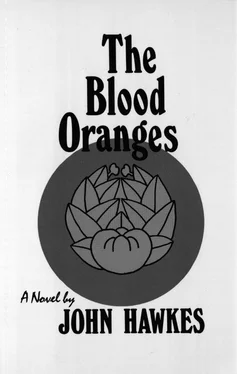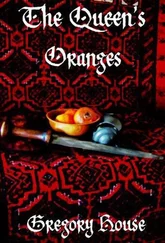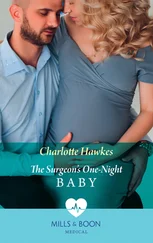“Hugh was not a suicide,” I murmured, “believe me.”
Last night I covered that ground with all the simplicity and delicacy I could muster and shifted back to Fiona’s motives in going off with the girls. My final low note of reassurance was that Fiona’s departure was not, like Hugh’s death, a finality. With or without the children, I said, Fiona herself would one day be coming back to us. At any moment, or at some time in the distant future, Fiona would simply come looking for us through the funeral cypresses. It was not a certainty, of course, but that had been the tenor of our farewell. Nothing was fixed.
ROSELIA (OUR SMALL, DARK-EYED, SULLEN ROSELLA) HAS spurned them all. The brazen village lover no longer spends half the night calling to Rosella through the lacy darkness of the cypress trees, the married fishermen have abandoned hope of holding Rosella’s hand. Even the old man who was the most vigorous and insistent of the lot, a short and barrel-chested old widower full of aggressive appreciation, no longer appears each dusk to tie his little female donkey in our lemon grove and to shake my hand, to glance covertly at Catherine, to tempt Rosella with his garrulous promises of lust and tenderness. Yes, I tell myself, they are gone, the lot of them, including the old man who left us one night forever with one hand thrust into his ragged pants and his great dark lecherous old face smiling in the grief of his last denial. Any one of them might have given Rosella a honeyed tongue, a life independent of the headless god. The old man would have put her back to work in the empty field, would have given her the donkey to lead along narrow thyme-scented paths of crushed shell, each night would have given her all the chuckling and naked magnificence of his uncountable years. But they are gone, all of them, and now the nights are filled with Rosella’s would-be lovers brooding separately in their far-flung huts of stone. And reclining on the wicker settee next to Catherine, I smoke, I listen, I notice Rosella watching us. I think of the old widower rubbing his squat knees in the darkness. I miss him (simple-minded old man with an itch for love), Catherine misses him, Fiona would never have let him go. Only Rosella is indifferent to the still night and all her absent suitors spurned for me. She is here, she is a shadow, she is Hugh’s last peasant nude.
HOW LIKE FIONA TO INSIST ON HELPING HUGH, I THOUGHT. While Catherine walked with the children in the middle and I brought up the rear with the rusty shovel, my wife joined Hugh at the head of our burial party and, staggering slightly under her share of the weight of the coffin, helped lead the way. Fiona’s mood was serious, her face was white, it was she and she alone who had to help Hugh carry the coffin. So from silver handles at either end, the small black top-heavy coffin swung between slender woman and slender man and journeyed slowly through the gloom of the noonday trees toward the hole which I, of course, would dig.
“Listen,” I heard Hugh say under his breath, “am I going too fast for you?”
“No, baby. It’s all right.”
For a moment they looked at each other — two heads in significant profile, two lovers joined by their shiny burden. I saw their glance, I valued it, I noted the tightened muscles of Fiona’s bare arm, I balanced the rusted shovel on one shoulder and smelled the breeze. In my left hand I gripped the pitted iron shaft of the Byzantine cross. Widely separated, speckled in soft light, we were moving, softly moving, and underfoot the carpet of brown pine needles could not have been more appropriate to Meredith’s misery or to the solemnity that Hugh and Fiona were casting over the occasion. For once Hugh was the father, Fiona had become a beautiful dry-eyed priestess for the dead dog and little girls. Catherine was doing her part, though Meredith refused to be consoled, and for the time being the two smaller children were behaving themselves. I too was enjoying the spirit of this unlikely hour.
No more old black dog, I told myself. No more wheezing in the darkness or paws on our bed at night. And how like Hugh to come to Fiona and me with the dead dog in his arms, how like him to leave the old animal’s body for an entire day behind our villa while in one of the narrow streets of the town he managed to find an actual coffin that was small, black, thickly ornamented, and intended obviously for a child. Now only Meredith was sniffling, Meredith who would not hold Catherine’s hand and who walked alone, while in our various ways the rest of us played out Hugh’s game of burial.
“We can stop and rest if you like.”
“It’s OK, baby. It’s OK.”
Fiona believed in the grief of children. I, of course, did not. Fiona’s short yellow shift and slender naked feet meant nothing, in no way contradicted the intensity of her mood as pallbearer. But that faint ring of impatience in Fiona’s voice? Yes, that brief sound told me that Fiona herself suspected Hugh’s motives, suddenly disliked his evident concern for her well-being at a time like this, doubted that the death of a fifteen-year-old decrepit dog justified all the elaborateness of Hugh’s formal plan. No matter what I might think, Fiona was walking through this grove of death because of Meredith. Whereas Hugh was apparently moving to the rhythm of some dark death of his own.
Muted path, dark green light, rough music of Meredith’s unhappiness. And Catherine, for whom all of this could only be one more domestic incident, was carrying little Eveline high on her hip and I was strolling after them and swinging the cross, shouldering my long-handled rusted shovel. Naturally it was Catherine, I mused, who had discovered the lifeless body of the dog, Catherine who had summoned Hugh, Catherine who had undertaken the job of telling Meredith. Yes, I thought, merely one more domestic incident for Catherine. But as a matter of fact, perhaps she was just as susceptible to her oldest daughter’s grief and her husband’s game as was Fiona. Why not assume that she was moved somehow, and like me was quite satisfied with her more pedestrian role in this makeshift ceremonial affair?
“Meredith, baby, stop crying. Please.”
But crab grass? Familiar crab grass? Full circle at last? And was it really possible that Hugh had brought us full circle through the gloom of the trees and across the carpet of pine needles to this thin strip of gray sand and frieze of sharp-toothed brittle grass which had once concealed his outstretched body from Fiona’s eyes but not from mine? Did he now intend the pitted cross in my left hand to mark not only the grave of the dog but also the very location where he himself had once sprawled dreaming his naked dream? Had he deliberately selected this spot of his lonely passion as the site for the pathetic grave? But was I reading the signs correctly? Was this in fact the same gray sand, the same black and fibrous crab grass? Yes, I told myself, none other, because now my field boots were sinking ankle-deep into familiar sand and Hugh’s shadow was already stretched out and sleeping in that low and narrow plot behind the crab grass where I would drive the shovel.
“Don’t say anything to spoil it, baby,” Fiona whispered at my elbow. “I’m warning you.”
So now the sonorous gloom of the trees had given way to the clear light of the empty beach. We were standing motionless together between trees and sea with the soft blue sky above us and, at our feet, the small and heavy casket stark on the sand. Bare-chested and thinking idly of incense, white-walled cemetery, family of anonymous mourners, white chapel housing a faceless priest, slowly I struck the shovel upright in the sand and glanced at Fiona, acknowledged her unnecessary admonition, gave her to understand that, as always, she had nothing to fear from her strong and acquiescent Cyril. But Fiona did not return my smile and my imaginary peasant mourners of a moment before were gone.
Читать дальше












